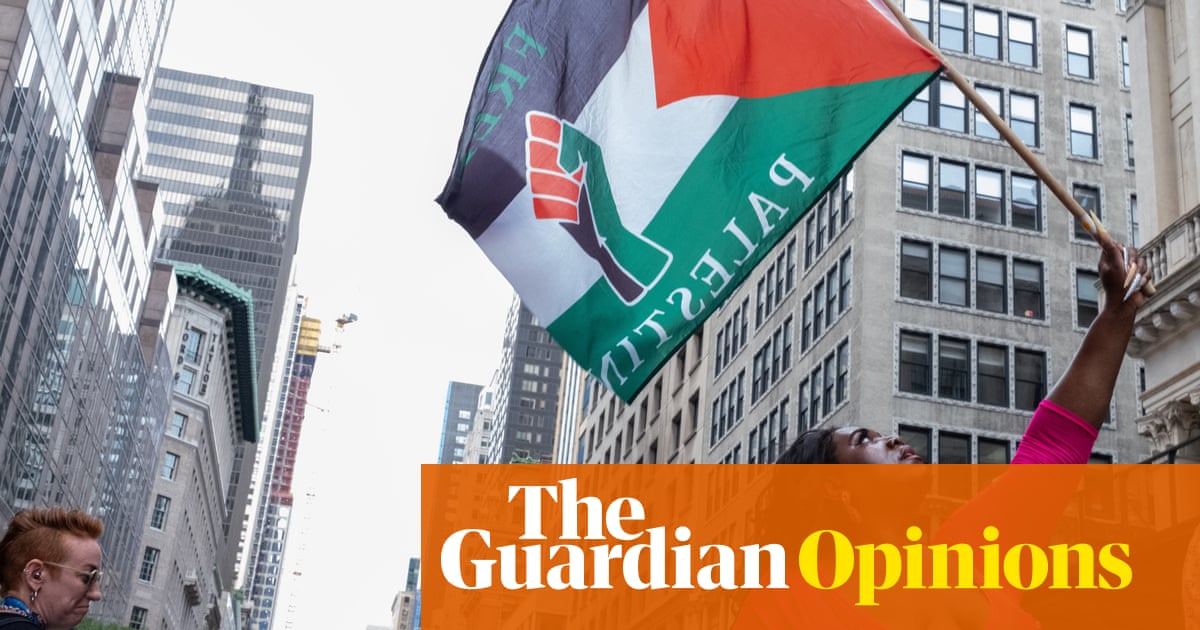Pride has never been apolitical, but in recent years, particularly after the Israeli occupation’s onslaught on the Gaza Strip after 7 October 2023, the coalition of queer rights in the west has felt increasingly fractured.
In Berlin, the city I call home, Pride events have splintered along political lines as Palestine has been a recurring point of contention.According to organisersof Internationalist Queer Pride Berlin (IQP Berlin), a split between two major alternative Pride events followed an incident in which the initial organisers called police to the event after participants expressed solidarity by chanting “free Palestine”. Meanwhile, at Berlin’s official Pride parade, attenders have previouslywaved rainbow and Israeli flagsas they marched through Berlinalongside an Israeli embassy float.
At last year’s IQP Berlin, the Palestine bloc was one of the largest. Jews and Arabs walked side-by-side, wrapped in Palestinian keffiyeh scarves, flanked by German police.
The eventfaced police pushback, including officers in full riot gear wielding batons and shields. At least 25 people were detained, with the Palestine bloc being key targets for the police.
Despite these displays of solidarity, and the risks of repression protesters have faced, there have been those who have sneered at the idea that queer people can find common cause with Palestine and advocate for liberation. The most popular example of this came last year when US pop star Chappell Roan criticised the Biden administration for its arming of the Israeli military. On stage at theGovernor’s Ball festival in New York, the singer, who is a lesbian with a drag persona,turned down an offerfrom the White House to perform for Pride month, saying: “We want liberty, justice and freedom for all. When you do that, that’s when I’ll come.”
Roan’s show of solidarity drew the ire of talkshow host Bill Maher, who suggested the singer would be “thrown off a roof in Gaza”, invoking an oft-used cliche based on a video that has been debunked byReutersandAFP,among others.
He went on to make punchlines about Roan’s career “blowing up” like pagersin Lebanon,referring to Israeli attacksthat killed 12 people and wounded thousands. Hundreds of children were killed in the following months in Lebanon, thousands in Gaza. Maher postured as the liberal hero of queer people, but it seemed easier for him, like many in the west, to point fingers at Palestinian society than to confront the systems his own countries support – systems that bomb, displace and isolate queer Palestinians in Gaza.
WhenBenjamin Netanyahu addressed congress in July 2024, the Israeli prime minister said that pro-Palestine protesters holding up signs saying “gays for Gaza” might as well call themselves “chickens for KFC”, suggesting our existence is mired in contradiction.
That attempt to sever solidarity between queer people and Palestine has been deadly. A year earlier, an Israeli soldierheld up a Pride flag in Gaza, with “in the name of love” scrawled on it in English, Hebrew and Arabic. The state of Israel’s official X accountboasted of this achievement, “the first ever pride flag raised in Gaza”. As a queer Palestinian, it is enraging to see my identity used as an instrument of war, but what I find most strange is the cognitive dissonance: for the “love” of whom is this flag raised? Certainly not of the queer Palestinians living in Gaza, who have faced 19 months of terror, and a lifetime of occupation.
In Jerusalem, the city where I was baptised, there is a very small organic scene of queer Palestinians. Some Palestinians from the city even visit Tel Aviv for Pride if they are allowed to travel there. Most are not. Queer Palestinians all face different obstacles based on where they live and how visible they are; their pain lives precariously in the crossfire of multiple struggles.
One friend inGazatold me he only wished to live in peace, away from conservatism, religious extremism and war. I later discovered he lost both of his parents and his brother, as well as cousins, in Israel’s onslaught. Another friend from Jerusalem told me he had a message for the west: that freedom comes in many layers. “We are under occupation and facing an ongoing genocide,” he said. “So the first layer is simply to exist.”
We can imagine and hope for a just, safe world for queer Palestinians to flourish in. Though there are some vibrant, if quieter, queer communities across the Middle East, there is still persecution. But if the goal is for queer Palestinians to live in an open, tolerant society, then they need first to survive Israel’s aggression. There can be no Pride under occupation.
There are Palestinian LGBTQ+ organisations such asalQawsandAlwanwith aspirations to shape a Palestinian society based on tolerance, equality and openness. An ambition that is made so much harder, if not impossible, by occupation.
You can’t see rainbows from underneath the rubble. Equally, you cannot in good conscience celebrate Pride in the west while knowing that many of our countries are supplying the arms and funds that are killing queer Palestinians, along with their families. Despite attempts to position the struggles of queer rights as in opposition to Palestinian liberation, I have been moved to see queer people not fall for the trap. This Pride month, we will march again, surrounded by confetti and keffiyehs.
Jad Salfiti is a British-Palestinian video producer and journalist
